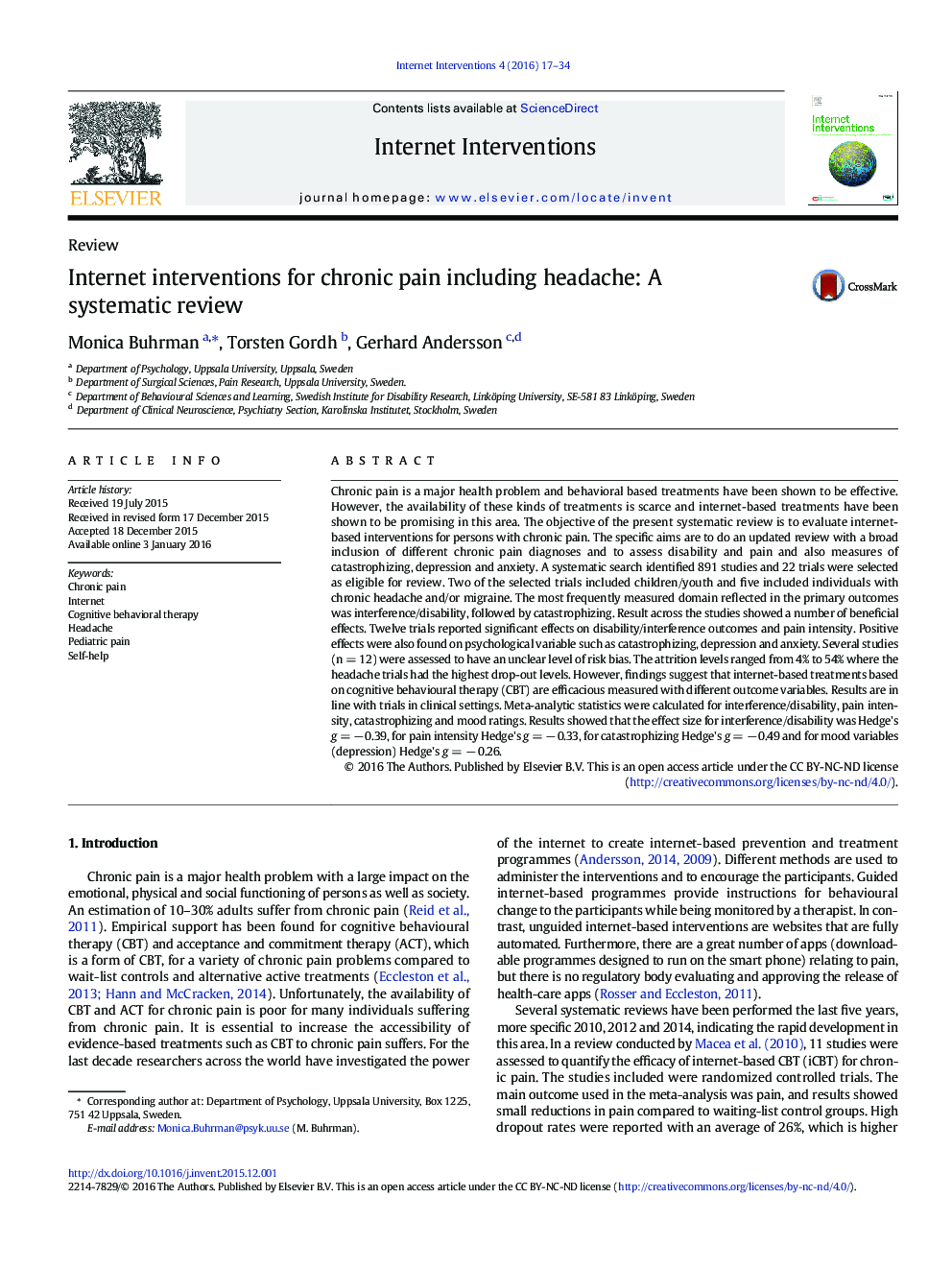| Article ID | Journal | Published Year | Pages | File Type |
|---|---|---|---|---|
| 554871 | Internet Interventions | 2016 | 18 Pages |
•Chronic pain is a depleting health problem, however the availability of effective treatments are scarce.•Internet based interventions have the potential to overcome several practical barriers•The results of this systematic review are in line with previous reviews with small to moderate overall effects.•The present review has a broader inclusion of studies with studies on headache and children/youth.•Meta-analytic statistics were calculated for disability/interference, catastrophizing, pain intensity and mood variables.
Chronic pain is a major health problem and behavioral based treatments have been shown to be effective. However, the availability of these kinds of treatments is scarce and internet-based treatments have been shown to be promising in this area. The objective of the present systematic review is to evaluate internet-based interventions for persons with chronic pain. The specific aims are to do an updated review with a broad inclusion of different chronic pain diagnoses and to assess disability and pain and also measures of catastrophizing, depression and anxiety. A systematic search identified 891 studies and 22 trials were selected as eligible for review. Two of the selected trials included children/youth and five included individuals with chronic headache and/or migraine. The most frequently measured domain reflected in the primary outcomes was interference/disability, followed by catastrophizing. Result across the studies showed a number of beneficial effects. Twelve trials reported significant effects on disability/interference outcomes and pain intensity. Positive effects were also found on psychological variable such as catastrophizing, depression and anxiety. Several studies (n = 12) were assessed to have an unclear level of risk bias. The attrition levels ranged from 4% to 54% where the headache trials had the highest drop-out levels. However, findings suggest that internet-based treatments based on cognitive behavioural therapy (CBT) are efficacious measured with different outcome variables. Results are in line with trials in clinical settings. Meta-analytic statistics were calculated for interference/disability, pain intensity, catastrophizing and mood ratings. Results showed that the effect size for interference/disability was Hedge's g = − 0.39, for pain intensity Hedge's g = − 0.33, for catastrophizing Hedge's g = − 0.49 and for mood variables (depression) Hedge's g = − 0.26.
